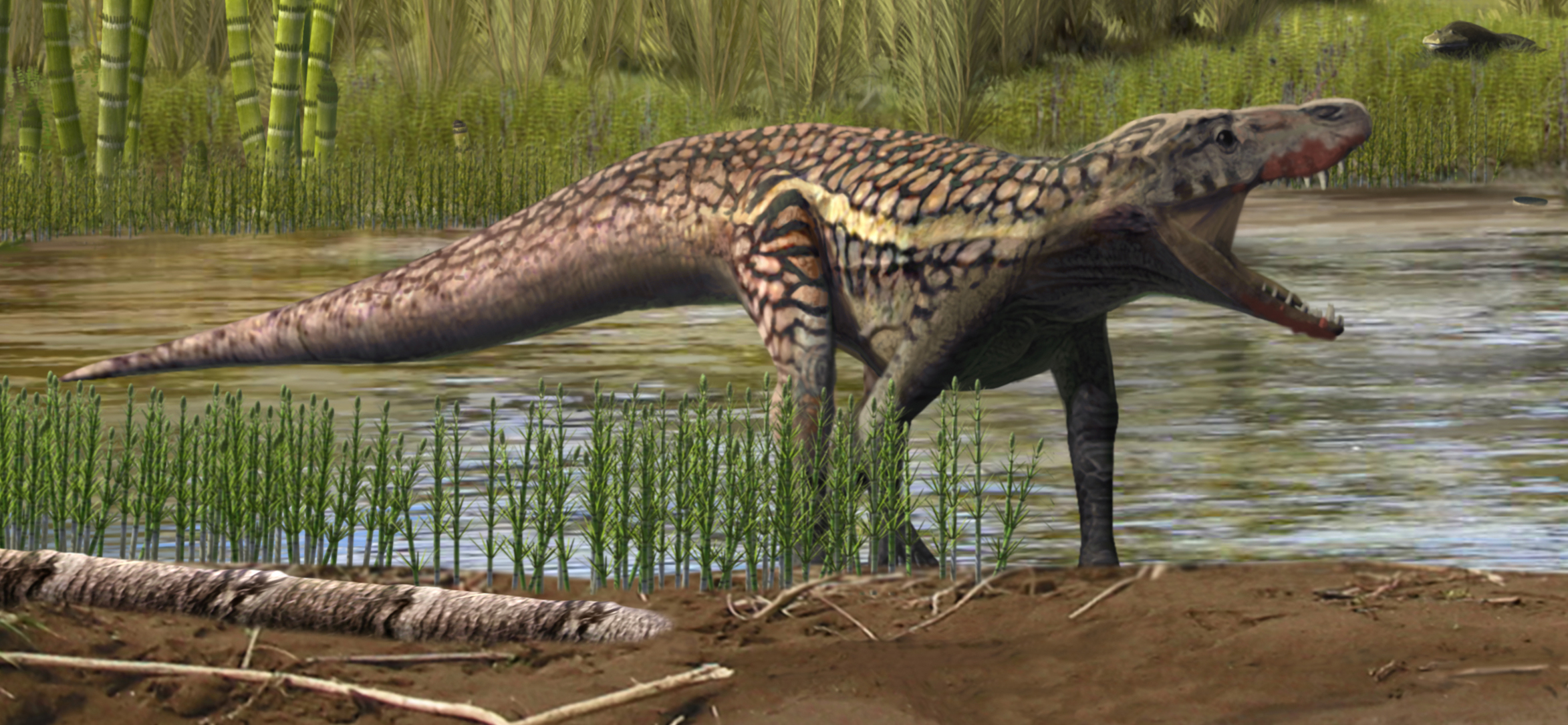
Fossil footprints shed light on recovery after mass extinction
Researchers have discovered fossilized footprints of an ancient reptile species that are over 200 million years old and could include new fossil evidence never before seen.
Eudald Mujal from Universitat Autónama in Spain and his colleagues examined trace fossil footprints of vertebrates from around 247 to 248 million years ago in the Pyrenees Mountains in Catalonia.
Their study was to investigate which vertebrate species lived during the beginning of the Mesozoic era. The Mesozoic era was a period of time immediately following the Permian mass extinction, which took place over 250 million years ago and resulted in the loss of roughly 90 percent of all species. The environmental and climatic conditions following this extinction hindered the recovery of vertebrate species as a whole across the globe.
The researchers identified tracks made by archosauromorphs – the ancestors of crocodiles and dinosaurs – by creating 3D models and silicone molds of the fossils they found. Most of these fossils were small, around half a meter in length, but a few specimens were longer than three meters.
In their analysis, the team identified a new footprint, belonging to Prorotodactylus mesaxonichnus – which led them to believe that this Pyrenean Prorotodactylus genus is related to archosauromorphs, rather than being a dinosauromorph as previously thought.
The research team postulates that the abundance of archosauromorph fossils in the Pyrenees is evidence of the role that archosauromorphs played in vertebrate recovery following the Permian mass extinction. “Trace fossils are evidence that archosauromorphs dominated the fluvial environments of the Catalan Pyrenees during the Triassic vertebrate recovery, early after the end-Permian mass extinction,” says Mujal.
This gives scientists a new perspective on vertebrate recovery following the largest mass extinction to ever occur on the planet.
More information on this study can be found in the open-access journal PLOS ONE.
—
By Connor Ertz, Earth.com Staff Writer
Source: PLOS
Image Credit: Eudald Mujal from Universitat Autònoma de Barcelona, Spain













